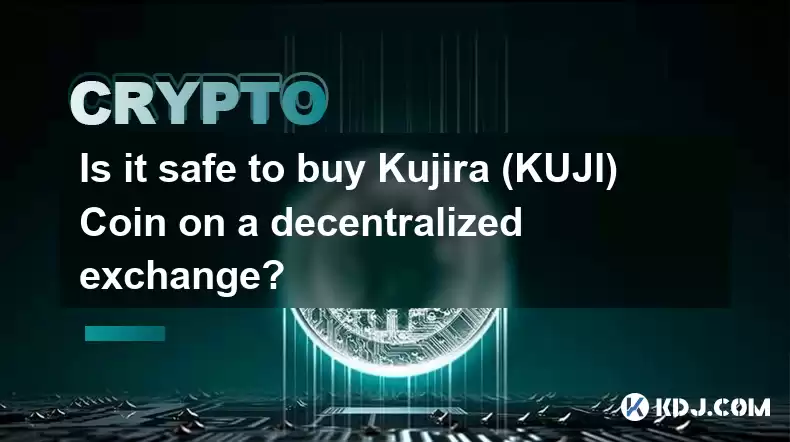-
 Bitcoin
Bitcoin $118800
-0.34% -
 Ethereum
Ethereum $4237
-0.62% -
 XRP
XRP $3.141
-1.79% -
 Tether USDt
Tether USDt $1.000
0.00% -
 BNB
BNB $808.8
0.01% -
 Solana
Solana $175.2
-3.73% -
 USDC
USDC $0.0000
0.01% -
 Dogecoin
Dogecoin $0.2238
-4.06% -
 TRON
TRON $0.3466
2.21% -
 Cardano
Cardano $0.7761
-3.07% -
 Hyperliquid
Hyperliquid $43.18
-4.79% -
 Chainlink
Chainlink $21.07
-3.83% -
 Stellar
Stellar $0.4347
-2.12% -
 Sui
Sui $3.686
-4.85% -
 Bitcoin Cash
Bitcoin Cash $581.5
1.78% -
 Hedera
Hedera $0.2488
-4.10% -
 Ethena USDe
Ethena USDe $1.001
-0.03% -
 Avalanche
Avalanche $22.89
-3.94% -
 Litecoin
Litecoin $120.0
-2.10% -
 Toncoin
Toncoin $3.394
1.58% -
 UNUS SED LEO
UNUS SED LEO $8.976
-1.54% -
 Shiba Inu
Shiba Inu $0.00001297
-4.26% -
 Uniswap
Uniswap $11.08
0.60% -
 Polkadot
Polkadot $3.873
-4.40% -
 Cronos
Cronos $0.1682
2.02% -
 Dai
Dai $1.000
0.00% -
 Ethena
Ethena $0.8056
-2.09% -
 Bitget Token
Bitget Token $4.413
-0.95% -
 Monero
Monero $264.4
-0.70% -
 Pepe
Pepe $0.00001122
-7.04%
Is it safe to buy Kujira (KUJI) Coin on a decentralized exchange?
To minimize risks when purchasing Kujira (KUJI) on a decentralized exchange (DEX), it is crucial to use reputable exchanges, thoroughly research the token, store assets in a hardware wallet, and maintain vigilance against scams.
Dec 25, 2024 at 11:35 am

Key Points:
- Understanding Decentralized Exchanges (DEXs) and their security features
- Risks associated with DEXs and how to mitigate them
- Security measures to consider when trading on a DEX
- Precautions for safe purchase of Kujira (KUJI) on a DEX
Is it Safe to Buy Kujira (KUJI) Coin on a Decentralized Exchange?
Decentralized exchanges (DEXs) have emerged as popular platforms for trading cryptocurrencies, including Kujira (KUJI). These exchanges offer several advantages, but their decentralized nature also raises questions about safety. Understanding the potential risks and implementing appropriate security measures is crucial for protecting your funds.
Understanding Decentralized Exchanges (DEXs)
DEXs are platforms that facilitate peer-to-peer trading of cryptocurrencies without the involvement of an intermediary. Unlike centralized exchanges, DEXs do not hold user funds directly. Instead, smart contracts manage the trading process, reducing the risk of theft or hacks.
Security Features of DEXs
DEXs implement various security features to protect users:
- Smart Contracts: Smart contracts automate the trading process, enforcing predefined rules and reducing the potential for fraud.
- Anonymous Transactions: Many DEXs allow for anonymous trading, providing privacy for users.
- Multi-Factor Authentication: Some DEXs offer multi-factor authentication mechanisms to enhance account security.
Risks Associated with DEXs
Despite their security features, DEXs are not immune to risks:
- Rug Pulls: Malicious actors may create fake DEXs or tokens to steal user funds.
- Scams: Phishing attacks and other scams can target DEX users.
- Vulnerabilities: Smart contracts and DEX platforms can have vulnerabilities that can be exploited.
Mitigating Risks on DEXs
To minimize risks when trading on DEXs:
- Use Reputable Exchanges: Opt for DEXs with a proven track record and positive user feedback.
- Research Tokens: Thoroughly research the token you plan to purchase, including its use case, team, and potential risks.
- Use a Hardware Wallet: Store your crypto assets in a hardware wallet to protect them from online hacks.
- Be Vigilant: Avoid clicking unfamiliar links or providing sensitive information on DEX platforms.
Precautions for Purchasing Kujira (KUJI) on a DEX
- Verify the DEX Address: Always check the official website of Kujira to confirm the correct DEX address.
- Use Secure Wallet: Use a reputable and secure wallet that supports KUJI.
- Trade Responsibly: Only trade the amount of KUJI you are willing to lose.
- Monitor Market Activity: Keep track of price movements and market sentiment for KUJI to make informed decisions.
FAQs:
Q: What are the best DEXs to buy Kujira (KUJI)?
A: Top DEXs for trading KUJI include:
- Osmosis Zone
- Sifchain
- Rango Exchange
Q: Are my funds safe on a DEX?
A: While DEXs offer security features, they are not completely risk-free. It is essential to implement the recommended precautions to minimize potential threats.
Q: Can I use a non-custodial wallet on a DEX?
A: Yes, non-custodial wallets such as Metamask and Ledger can be used on DEXs, providing users with full control over their private keys and assets.
Disclaimer:info@kdj.com
The information provided is not trading advice. kdj.com does not assume any responsibility for any investments made based on the information provided in this article. Cryptocurrencies are highly volatile and it is highly recommended that you invest with caution after thorough research!
If you believe that the content used on this website infringes your copyright, please contact us immediately (info@kdj.com) and we will delete it promptly.
- BlockDAG, Chainlink, Hedera: The Cryptos Enterprises are Eyeing
- 2025-08-12 09:30:12
- Dogecoin's Wild Ride: Big Holders, Price Push, and What's Next for the Meme Coin
- 2025-08-12 08:30:12
- Coin Master Board Adventure: Free Energy and the Thrill of the Board
- 2025-08-12 08:50:12
- Bitcoin to $133,000? Here's What the Experts Are Saying
- 2025-08-12 08:30:12
- LYNO AI Presale: Early Bird Opportunity Before Token Price Hike
- 2025-08-12 08:50:12
- Dogecoin, Tron Update, Cold Wallet ROI: Navigating Crypto's Choppy Waters
- 2025-08-12 09:30:12
Related knowledge

How to purchase Aragon (ANT)?
Aug 09,2025 at 11:56pm
Understanding Aragon (ANT) and Its PurposeAragon (ANT) is a decentralized governance token that powers the Aragon Network, a platform built on the Eth...

Where to trade Band Protocol (BAND)?
Aug 10,2025 at 11:36pm
Understanding the Role of Private Keys in Cryptocurrency WalletsIn the world of cryptocurrency, a private key is one of the most critical components o...

What is the most secure way to buy Ocean Protocol (OCEAN)?
Aug 10,2025 at 01:01pm
Understanding Ocean Protocol (OCEAN) and Its EcosystemOcean Protocol (OCEAN) is a decentralized data exchange platform built on blockchain technology,...

Where can I buy UMA (UMA)?
Aug 07,2025 at 06:42pm
Understanding UMA and Its Role in Decentralized FinanceUMA (Universal Market Access) is an Ethereum-based decentralized finance (DeFi) protocol design...

How to buy Storj (STORJ) tokens?
Aug 09,2025 at 07:28am
Understanding Storj (STORJ) and Its Role in Decentralized StorageStorj is a decentralized cloud storage platform that leverages blockchain technology ...

Where to find the best price for Audius (AUDIO)?
Aug 11,2025 at 04:01pm
Understanding the Basics of Ethereum StakingEthereum staking refers to the process of locking up ETH tokens to support the security and operations of ...

How to purchase Aragon (ANT)?
Aug 09,2025 at 11:56pm
Understanding Aragon (ANT) and Its PurposeAragon (ANT) is a decentralized governance token that powers the Aragon Network, a platform built on the Eth...

Where to trade Band Protocol (BAND)?
Aug 10,2025 at 11:36pm
Understanding the Role of Private Keys in Cryptocurrency WalletsIn the world of cryptocurrency, a private key is one of the most critical components o...

What is the most secure way to buy Ocean Protocol (OCEAN)?
Aug 10,2025 at 01:01pm
Understanding Ocean Protocol (OCEAN) and Its EcosystemOcean Protocol (OCEAN) is a decentralized data exchange platform built on blockchain technology,...

Where can I buy UMA (UMA)?
Aug 07,2025 at 06:42pm
Understanding UMA and Its Role in Decentralized FinanceUMA (Universal Market Access) is an Ethereum-based decentralized finance (DeFi) protocol design...

How to buy Storj (STORJ) tokens?
Aug 09,2025 at 07:28am
Understanding Storj (STORJ) and Its Role in Decentralized StorageStorj is a decentralized cloud storage platform that leverages blockchain technology ...

Where to find the best price for Audius (AUDIO)?
Aug 11,2025 at 04:01pm
Understanding the Basics of Ethereum StakingEthereum staking refers to the process of locking up ETH tokens to support the security and operations of ...
See all articles

























































































